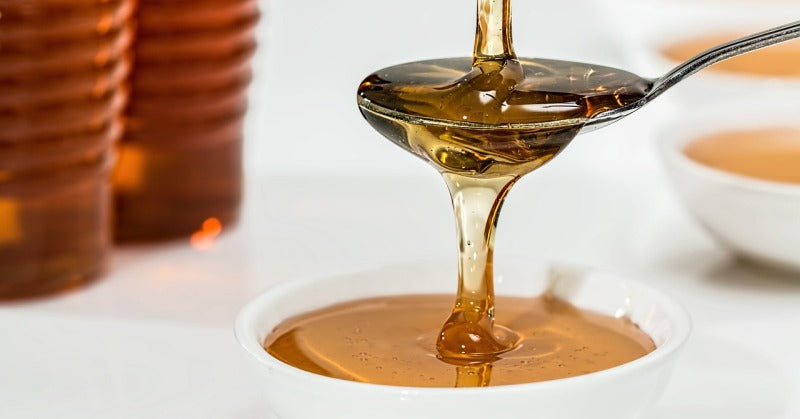If you've ever had strep throat, you know what a pain it can be. Literally. Strep throat is a bacterial infection that can make your throat feel sore and swollen. If untreated, it can cause further complications, including kidney inflammation or rheumatic fever.
The cause of strep throat is a bacteria called Streptococcus pyogenes or group A streptococcus. This bacteria is highly contagious. The most common treatment is antibiotics, but studies have shown that antibiotics are only somewhat helpful when it comes to strep throat. If you're battling strep throat, you can try several home remedies to find relief from your symptoms and get your immune system back on track.




 https://youtu.be/qomYGRbq744
Sources:
NCBI
International Journal of Infectious Diseases
NCBI
NCBI
Lung Institute
NIH
NCBI
NCBI
WebMD
Wise Choice Market
Mayo Clinic
NCBI
https://youtu.be/qomYGRbq744
Sources:
NCBI
International Journal of Infectious Diseases
NCBI
NCBI
Lung Institute
NIH
NCBI
NCBI
WebMD
Wise Choice Market
Mayo Clinic
NCBI
1. Vitamin D
Studies have shown that Vitamin D plays an important role in keeping the immune system strong. According to a recent study published in the International Journal of Infections Diseases, there's a link between Vitamin D deficiency and the recurrence of respiratory conditions caused by group A strep bacteria. Getting your daily dose of Vitamin D can help prevent strep throat as well as cure it.2. Herbal Tea
Herbal tea is the perfect remedy to soothe your throat when you're battling strep. It can help ease the pain while treating inflammation. Chamomile tea is loaded with antioxidants that can help reduce pain, congestion, swelling and redness. Dandelion tea is another great home remedy for strep throat. It treats the infection while giving your immune system a boost.
3. Apple Cider Vinegar
Apple cider vinegar is a natural anti-bacterial, thanks to the acetic acid it contains. Sipping it while sick can help kill dangerous bacteria while encouraging the growth of helpful bacteria. Apple cider vinegar benefits are numerous and it works as a natural antibiotic to get your back on your feet.4. Himalayan Salt
Gargling with pink Himalayan salt can help reduce swelling related to strep throat. It also temporarily increases the pH balance of your mouth to create an alkaline environment. This makes it difficult for bacteria to survive. Pink Himalayan salt is a natural antibacterial and anti-inflammatory.
5. Peppermint Oil
Peppermint oil is a natural remedy for a sore throat. It contains menthol, which causes a cooling sensation in the throat and has a calming effect on the body. Simply add 1-2 drops of peppermint oil to a glass of water to use it internally. For topical use, apply 1-2 drops to your throat, chest and temples.6. Raw Honey
Raw honey has healing powers, thanks to its antibacterial activity. It has the ability to create a protective barrier to prevent infection. Raw honey also helps boost the immune system with its many antioxidants. It can help soothe the pain of strep throat.
7. Bone Broth
Bone broth is soothing and easy to eat when you have a sore throat. It contains minerals that your body can easily absorb, including calcium, magnesium and phosphorus. Bone broth keeps you hydrated while giving your immune system a much-needed boost.8. Elderberry
Elderberry has antibacterial and antiviral effects that can prove useful when battling strep throat. You can drink elderberry tea, take capsules or use elderberry powder. You can even buy it in liquid form. If you have strep throat, look for elderberry at a health food store.
9. Lemon Oil
Thanks to its natural antibacterial properties, lemon oil can help cleanse toxins from the body. Research has shown that lemon oil can limit the growth of antibiotic-resistant bacterial strains. To use it as a home remedy for strep throat, add 1-2 drops to a glass of water. You can also add it to your herbal tea for more flavor and an extra health boost.10. Oil Pulling
Studies have shown that oil pulling can reduce the presence of strep bacteriain the mouth. Coconut oil pulling is one of the best ways to detox your mouth in order to create a clean, germ-free environment. Swish 1-2 tablespoons of coconut oil in your mouth for about 10 minutes, then spit it out in the trash. Rinse your mouth, then brush your teeth. https://youtu.be/qomYGRbq744
Sources:
NCBI
International Journal of Infectious Diseases
NCBI
NCBI
Lung Institute
NIH
NCBI
NCBI
WebMD
Wise Choice Market
Mayo Clinic
NCBI
https://youtu.be/qomYGRbq744
Sources:
NCBI
International Journal of Infectious Diseases
NCBI
NCBI
Lung Institute
NIH
NCBI
NCBI
WebMD
Wise Choice Market
Mayo Clinic
NCBI




